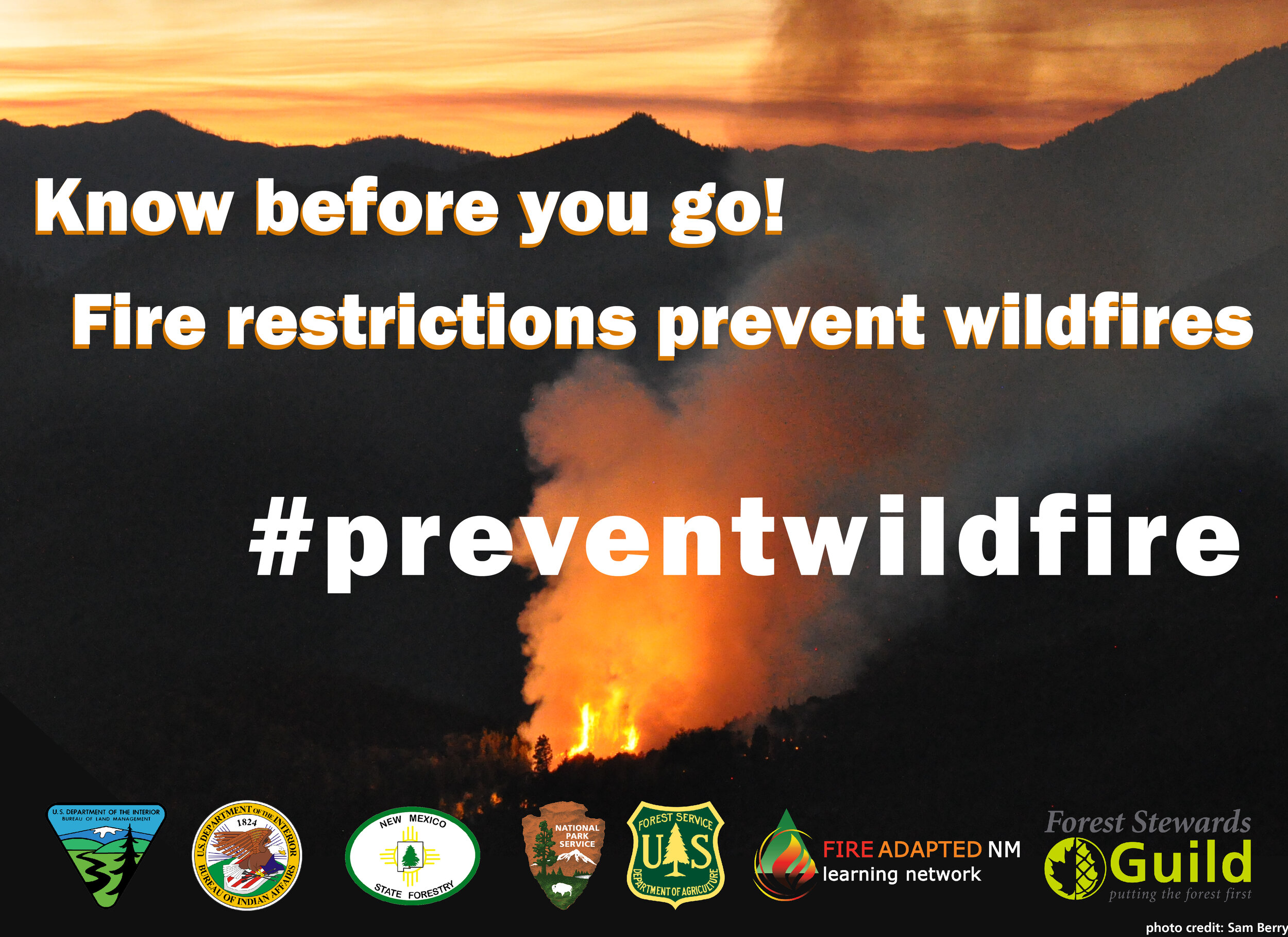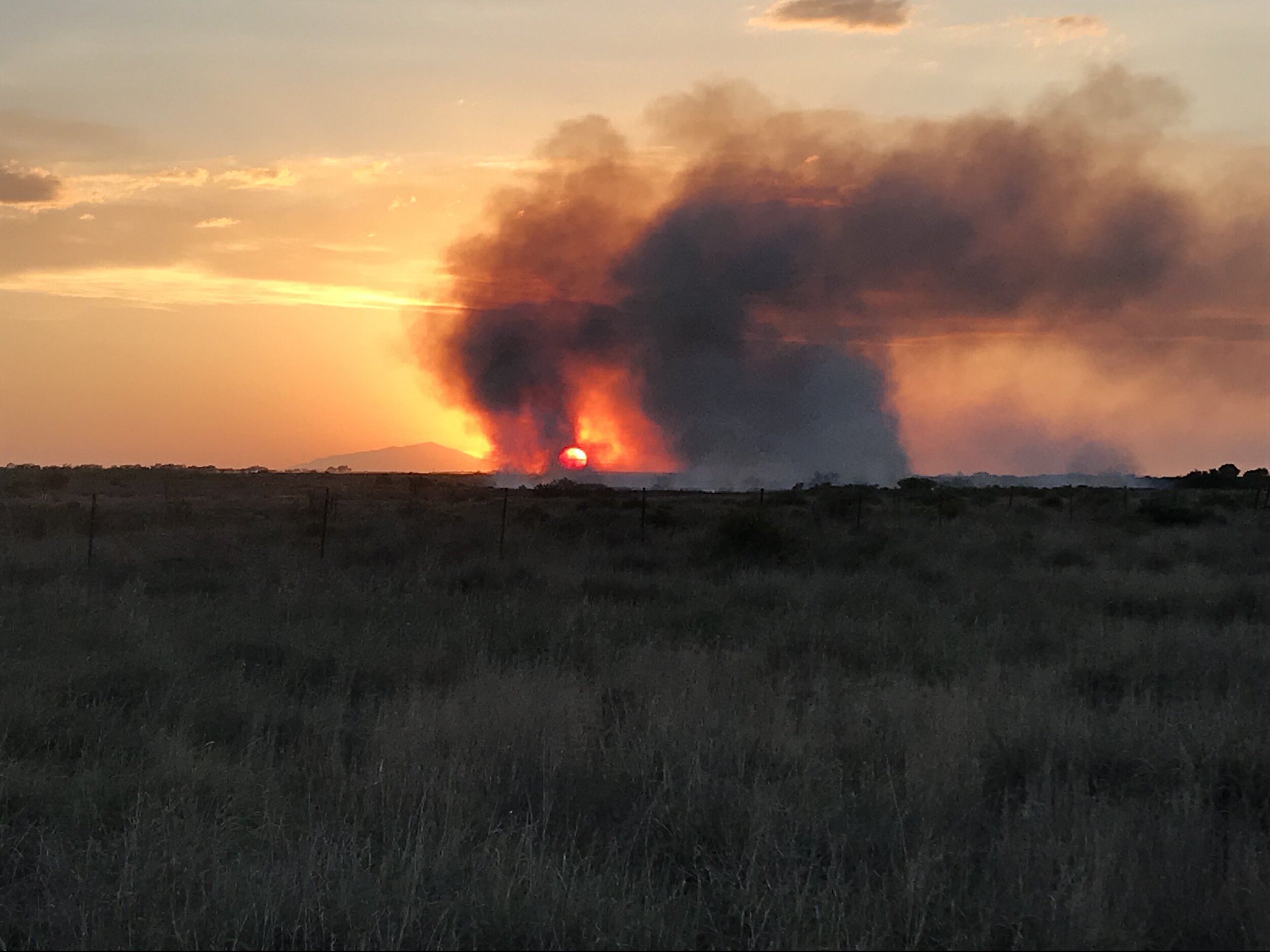Hi FACNM Members,
With The Fourth of July this weekend, many people are excited to get out of their homes and recreate outdoors. I know I am. This is not a typical year -- fire danger and the risk of covid-19 remain high. Fireworks, campfires, and large groups put American lives at risk this Fourth of July. We support you in encouraging your friends and families to find alternative ways to celebrate The Fourth this year.
This edition of Wildfire Wednesday includes:
Fire prevention messages that you can share on social media to encourage your friends and family to recreate responsibility this year.
An introduction to the smoke resources page on FACNM
An article that looks at the connection between hummingbirds and wildfire in fire adapted landscapes
Stay safe,
Gabe
Please Help us Prevent Wildfire! Use these social media posts!
Please help prevent wildfire by sharing these messages on Facebook, Instagram, Twitter or over email. If this simple step prevents one wildfire, it could save lives and will help keep our first responders safe during the 2020 fire season. Just add the flyer as a photo and use our suggested caption, or create one of your own. Then, like and follow the FACNM Facebook page so we can see your post!
Recreate Safely
Click Here to Download this Flyer!
Suggested Caption: Click Share and Help Prevent Wildfire: We all need your help to prevent wildfires this summer. The statewide average of human-caused wildfires in New Mexico is 48% of all wildfires and most of these fires can be prevented. Don’t drag chains, check spark arrestors on vehicles and equipment and for information about preventing wildfires over The Fourth of July weekend, visit https://nmfireinfo.com/ Suggested Hashtags: #recreateresponsibly #preventwildfire #nmfire #fireadaptednm
Know Before You Go
Click Here to Download this Flyer!
Suggested Caption: Click Share and Help Prevent Wildfire: Know Before You Go! Before you make plans to have any smores over the campfire check for current fire restrictions. Campfires and fireworks are not allowed on most public and private land throughout New Mexico. For more information, call the Fire Restrictions Hotline: 1-877-864-6985 or visit https://firerestrictions.us/nm/
Suggested Hashtags: #recreateresponsibly #preventwildfire #nmfire #fireadaptednm
Do Your Part, Don’t Let A Wildfire Start
Click Here to Download this Flyer!
Suggested Caption: Click Share and Help Prevent Wildfire: Firefighters and first responders are needed more than ever to keep America safe . Prevent wildfires by following fire restrictions, postponing debris burning, and using campfire alternatives.
Suggested Hashtags: #recreateresponsibly #preventwildfire #nmfire #fireadaptednm
Protecting yourself from Smoke during COVID
Smoke preparedness to protect you and your family has taken on a new importance with the compounding impacts of the respiratory illness from the coronavirus pandemic. Although not wildfire smoke specific, recent scientific studies from Italy and the UK (Conticini et al., 2020 & Travaglio et al., 2020) suggest that air pollutant exposure worsens COVID-19 symptoms and outcomes. This research is part of the reason why land managers have adjusted their tactics this year to try and limit smoke impacts on communities as much as possible. (see our interview with an FMO for more)
However, even with fire fighters doing their best, it is impossible to avoid smoke impacts from wildfires. If you are predisposed to respiratory ailments the best thing to do is prepare ahead of time, by monitoring smoke forecasts from www.airnov.gov and setting up a clean air room in your home to escape the effects of smoke. To do this, prevent smoke from entering and filter the air if possible.
This page from the CDC captures some FAQs about wildfire smoke and the corona virus outbreak. Wildfire Smoke and COVID-19: FAQs
If you are thinking about setting up a Cleaner Air Shelter for your community the CDC has also released guidance: COVID-19 and Wildfire Smoke Cleaner Air Spaces
For much more information on how to prepare for smoke please visit our website. There we have information about protecting yourself from smoke, selecting an air cleaner, and more.
The Forest Stewards Guild is also now restarting out HEPA Air Cleaner Loan Program in some locations with new policies to limit the spread of COVID-19.
FACNM Air Cleaner Loan Program
Hummingbirds and Wildfire
Hummingbirds are some of the most beloved birds to observe; whether you are an avid bird watcher, a professional ornithologist, or simply a nature lover, these beautiful birds spark joy for all. As residents of fire-adapted ecosystems, you might wonder how our colorful friends fare with wildfire. The Forest Service released a literature review this year that summarizes the studied effects of fire on species of hummingbirds throughout the United States (see link below). In their paper, Alexander and associates found that most species of hummingbirds respond positively to fire, and that many hummingbird species show higher abundance in burned forests compared with unburned areas. In their review, Alexander et al. remark that while unnaturally severe fires pose serious risks, the positive benefits these hummingbird species are receiving from less severe fires are likely connected with the health of local fire-adapted plant and insect populations. Turns out, hummingbirds are among a wealthy community of fire-adapted organisms that benefit from natural, historically consistent fire.
Upcoming Webinars
Wildfire Series: Response and Recovery
The Human Dimensions of Wildfires
Thursday, July 9, 2020 - 2:30pm
Join us for a panel discussion on the human dimensions of wildfire response and recovery during the COVID-19 pandemic. Our panelists Luke Beckman from the Red Cross, Alma Bowen from Nuestra Comunidad, and Charles Brooks from the Rebuild Paradise Foundation will discuss the challenges and best practices for evacuations, shelters, planning and coordination, and recovery efforts in our new reality.
Panelists
Alma Bowen, Executive Director, Nuestra Comunidad
Charles Brooks, Executive Director, Rebuild Paradise Foundation
Luke Beckman, Division Disaster State Relations Director, American Red Cross
Moderator
Rebecca Miller, PhD Candidate, E-IPER





